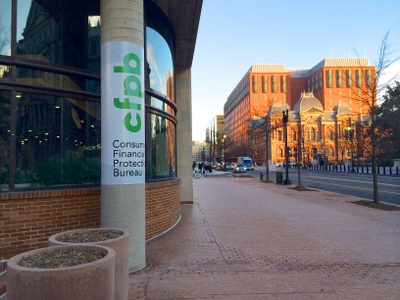Photo credit: Ted Eytan
Fannie Mae and Freddie Mac establish an indefinite grace period
Despite the White House threatening to veto, the House passed the Homebuyers Assistance Act (HAA), which is bipartisan-sponsored legislation allowing a four-month grace period for lenders working in good faith to comply with TILA-RESPA Integrated Disclosures (TRID).
Mortgage and housing industry stalwarts, Mortgage Bankers Association, National Association of REALTORS and several other trade organizations support the update to the 1,888-page Consumer Financial Protection Bureau (CFPB) rule.
“Without this bill, homebuyers could encounter delays and difficulties when they try to close on their homes,” said House Financial Services Committee Chairman Jeb Hensarling, R-Texas. “Buying a home is stressful enough, and bureaucratic delays should not add to their stress.”
A letter asking for a formal grace period was sent by 254 House members to the CFPB director Richard Cordray in May, 92 of them are Democrats. Forty-one Senate members also sent a similar letter. The legislation now goes to the Senate for consideration.
“This legislation is important for credit unions as they work in good faith to comply with the TRID rule, which became effective October 3,” said Ryan Donovan, Credit Union National Association chief advocacy officer. “CUNA and other stakeholders repeatedly asked the CFPB to provide a formal hold-harmless period to ensure the rule has minimal impact on consumers and residential home mortgage closings. We thank the House for their quick action on this important issue and urge the Senate to do the same.”
Representative Brad Sherman, D-Calif., one of the bill’s co-sponsors, said that the bill would allow small lenders the benefit of a hold-harmless period, they can work towards full compliance without penalty and not bog down mortgage credit access.
Fannie Mae and Freddie Mac also believe that a grace period would be good. Fannie and Freddie, in showing that they understand the industry’s potential pain, have established their own TRID enforcement grace period, but without a designated end date.
The GSEs have recently sent nearly identical letters to servicers and lenders, acknowledging that the lenders and their partners have made major operational and technological changes to become compliant with the new TRID rules. The letters also recognized the industry’s enormous efforts made to date, further adding that they are aware that some lenders and servicers continue to address TRID implementation.
Fannie and Freddie say that they will not conduct routine post-purchase loan file reviews to determine technical compliance “until further notice.” Lenders will still have their loans evaluated by the GSEs to determine if the correct mortgage origination forms were used. Fannie and Freddie also expect lenders to make “good faith efforts” to comply with the TRID rules. Not doing so would be considered a violation of the good faith efforts standard and would render the mortgage subject to “all contractual remedies” including repurchase. They further noted that after a transitional period, they will consider conducting post-purchase loan file reviews for TRID compliance, but said they’ll make an announcement before implementing.
Sources:
HousingWire. House passes bipartisan TRID grace period bill 303-121
HousingWire. Fannie Mae, Freddie Mac just joined CFPB in extending TRID grace period


